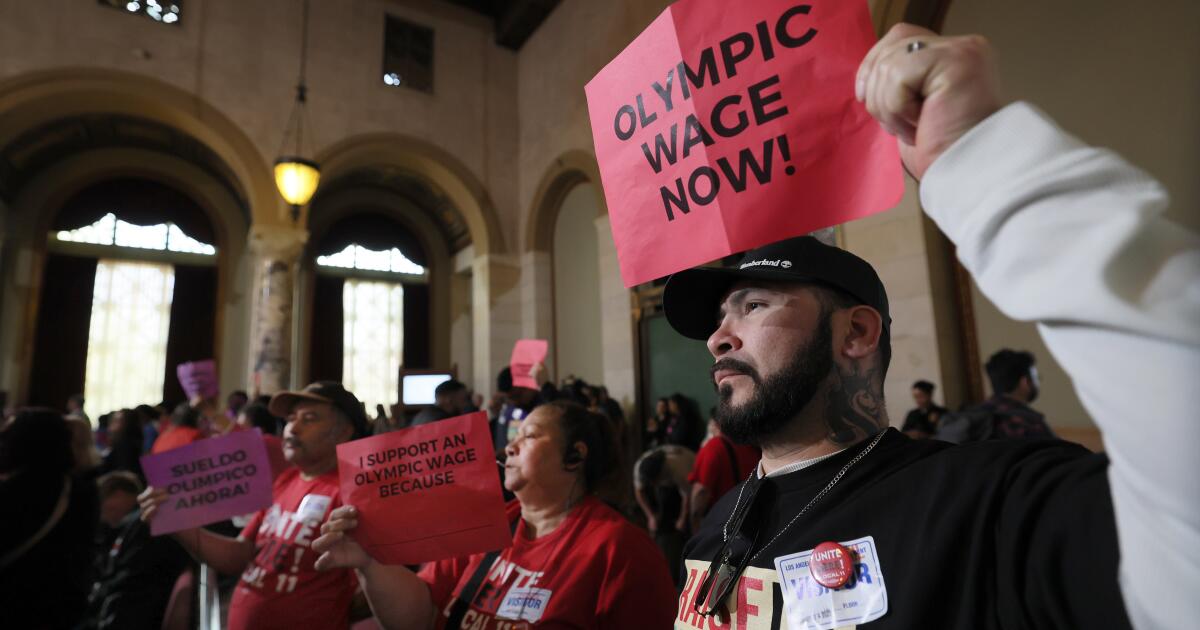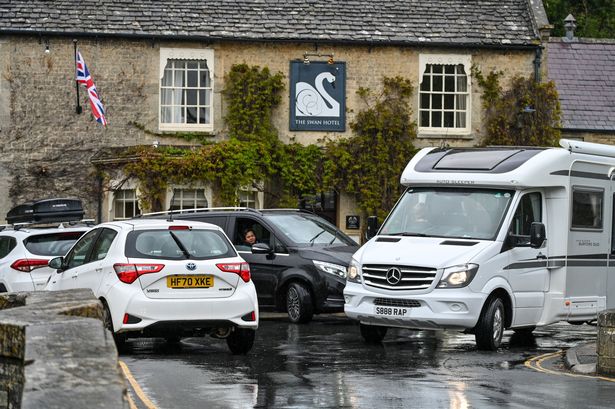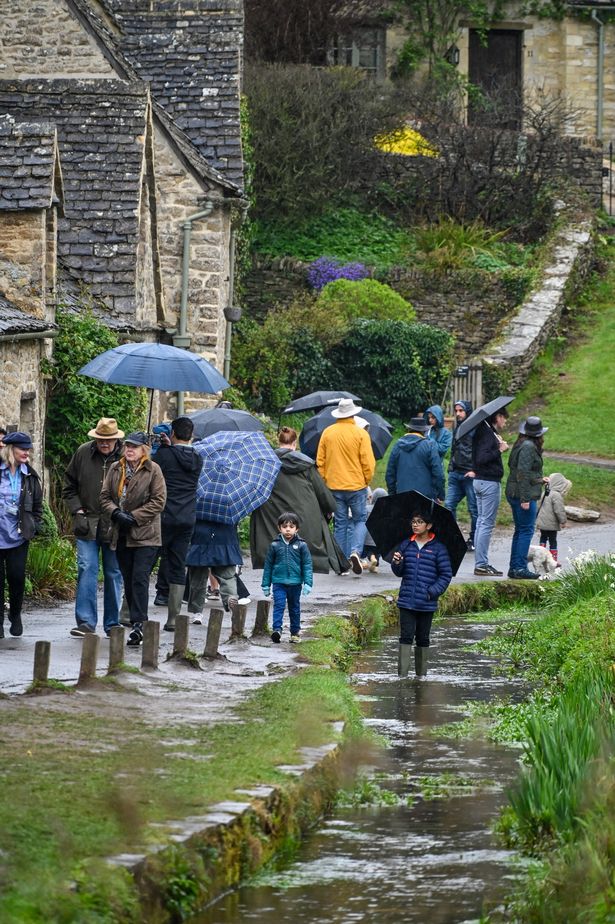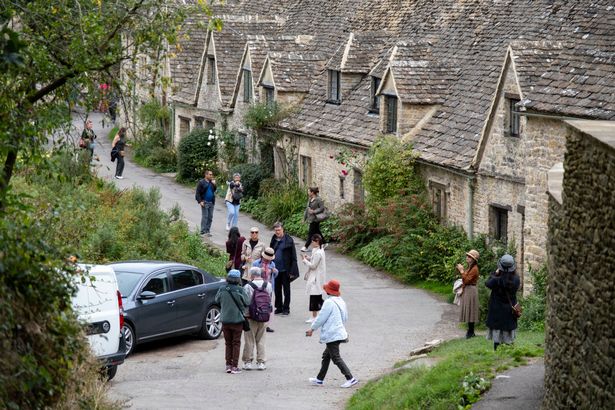The council chairman of a popular UK tourist destination has said that introducing a new car park was “not plausible” as the village continues to struggle with overtourism
Plans for a new car and coach park in one of England’s most idyllic villages have been withdrawn to deter more tourists from visiting. While some destinations clamour to intrigue travellers, this holiday hotspot in Gloucestershire says “enough people” are already visiting.
Bibury – often called the ‘Capital of the Cotswolds’ – sees thousands of tourists visit from across the world annually. But the fairytale-esque village is considered a victim of its own beauty, as hordes of tourists have been causing significant traffic and chaos in the area.
As reported by the BBC, Craig Chapman from Bibury Parish Council said that a potential proposal for a car park would have been rejected by planners had it made it to the council. While the proposal was eventually dropped, Chapman said there are “enough people coming into the village”.
READ MORE: Insanely beautiful UK village is so magical you won’t ever want to leave
He continued: “the thought of having an out of village car park with 130 cars and 10 coaches – at least 500 people shuttling down to the village or walking the narrow pavement was not plausible.”
Bibury has garnered a reputation as the ‘most beautiful village in England’ as once described by 19th century writer William Morris. Today, it is home to a few hundred residents but welcomes thousands of visitors daily, with up to 50 coach buses coming into the village a day.
Locals have grown increasingly unnerved by the massive tourist crowds descending on the area. To address the problem of overtourism, residents have formed a working group that includes councillors and police. Gloucestershire County Council has also announced plans to tackle overtourism in the village.
Early this year, reports emerged that coaches could soon be banned from stopping and parking in the village. However, less drastic measures will be implemented sooner.
Over the next few months, the layout of parking bays will be updated to prevent coaches from parking or idling in the layby on the B4425. This is next to the Swan Bridge in the centre of the village.
The second phase of plans will see the potential introduction of restrictions on coach access to the centre of Bibury. In order to move forward with this, a legal consultation process would be needed and is set to start in early summer.
Longer-term recommendations from the working group also include improving signs to direct coaches away from the village’s narrow lanes. In addition, the group wants to explore alternative parking options outside the village.
Finally, the local working group wants to encourage tourists to use other modes of transport to visit the village, including walking, cycling or using public transport. There is no direct train into Bibury, however many travellers take a direct train to Kemble from London and then get a 24-minute taxi to Bibury.
All said, there are still plenty of other villages in the Cotswolds to explore and which deserve traveller attention. Despite being slightly less popular than Bibury, Broadway is considered to be the ‘jewel of the Cotswolds’.
Located in the north of the region, the village is known for its manicured lawns, art galleries and classic tea shops. Broadway is a particular gem for art and antique lovers and collectors.




